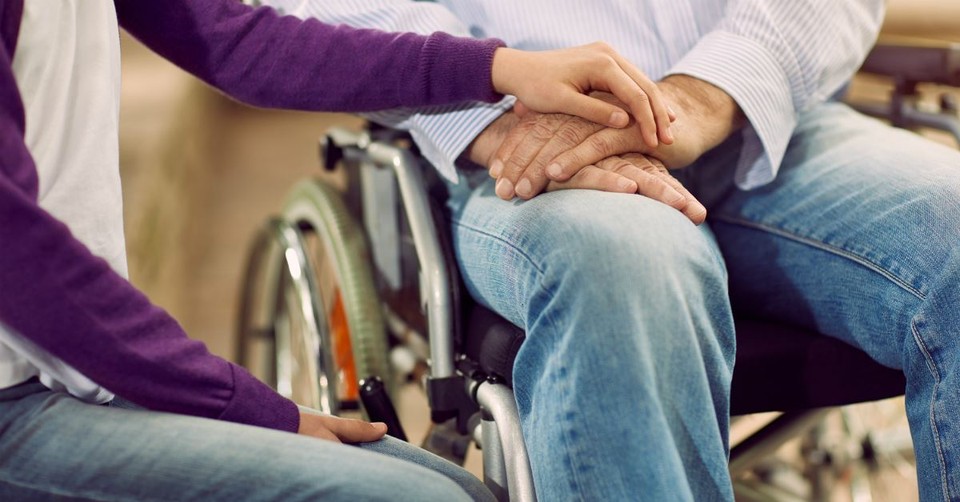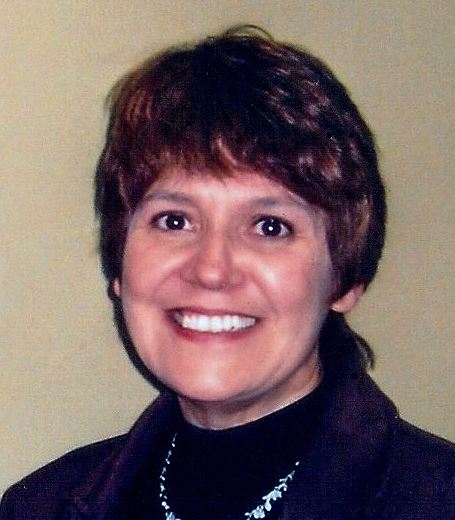7 Things People with Disabilities Want Us to Know

Do you know one thing I am learning rather quickly? We are too quick to judge others.
We can look at someone or observe them for a while and before we know it, we think we have them figured out. The only problem is, we’re probably wrong.
I recently gave the floor to some of my readers asking them what people with disabilities want others to know. And they did not disappoint me. Responses of all kinds came in. I could hear the hurt behind their comments. And so, I have gathered up all the information and created this article which I hope will be helpful.
Here are seven things people with disabilities want us to know and how you can help:
1. See me, not my disability.
People who are disabled have value and they have much to offer. Yet, they are afraid all that people see when looking at them is their disabilities. That comment came up again and again. One person said, “I am not defined by my disability. I am more.”
When I was growing up, I lived with a very authoritarian father. I honestly don’t remember one time he gave any of us a compliment, or any encouragement. I do, however, remember no matter what we did it was not good enough. And I also remember, no matter what my mother served us for dinner, my father would go to great lengths to critique it, complete with suggestions on what she should have done to make it better.
It’s so easy to focus on what we think is lacking instead of what is of value.
We need to ask God to help us see things with his eyes. When God looks at us, he sees our hearts. All of us long to be seen. Read Genesis 16:13. Hagar refers to God as the one who sees her. That’s how important it is. To know we count. That we matter. And every single person is created by God. Every one matters.
2. Believe I’m disabled even if you don’t see my disability.
Another person shared: “My disability makes things extremely difficult, but it’s made even worse when people question if I’m even disabled. They assume because my disability is not seen, it must not exist. True, I have some days that are better than others. But there have even been times others have felt like I must be all better, when they’ve seen me on a good day. Making assumptions based on the little people see is not fair.”
Imagine how you would feel if you were suffering and no one even believed it was true?
Maybe we wouldn’t come right out and say that to the person, but isn’t that what we convey when we start making suggestions of what they could do, what they should do, what a family member of ours did who found help?
In James 1:19, God tells us to be slow to speak. He knows we don’t always use wisdom and sometimes we engage our mouths prematurely. Instead of making assumptions about someone who is disabled, get to know them. And after a while you may grow in trust together.
3. Remember that I didn’t choose to be disabled.
One person with depression shared,
“This is not something I would have chosen for myself. Sometimes it’s hard to even get up. I know people look at me and when I’m having a decent day, they don’t even see anything wrong with me. Maybe they think I just don’t want to work, that I’m lazy or something.”
This person added, “But there are other days that I have to just make myself do the things that normally would be easier. I end up sleeping for long periods of time, and I miss normal family things. There are times I don’t even feel like doing anything. Including eating. Sometimes I just want to sleep all day.”
When those you know suffer from depression, it’s important to try and connect, even if it’s just for a few minutes. My husband suffers from clinical depression. He once had a friend that came over to just take a walk with him. That one gesture meant so much. Was he excited about going for the walk? No. But he knew his friend cared. Reaching out to someone who’s depressed lets them feel a little less lonely.
4. Treat me like you’d treat anyone else.
Another person shared:
“Whenever I’m with someone they always seem to do one of two things. Either tell me that I don’t look sick, or start listing things I could do to feel better. Why can’t people see me for who I am, not for what I’m not? And I so wish others would not use my wheelchair as a topic of conversation. I have to depend on it every day, but I would rather not talk about it, too.”
When speaking to someone who is disabled, look past the person’s inabilities and concentrate on who they are as a person. This person is made in God’s image. A person who thinks and feels just as you do. People who are disabled have hopes and dreams the same as everyone else. It would be refreshing to them if they could just talk without feeling defined by their disability...just two people talking.
5. Include me in your events/befriend me.
A family member of someone with a disability shared: “He just wants to be included. He just wants someone to be his friend.”
So often those with a disability are completely overlooked. Imagine how you would feel if you were in a room and everyone else was talking with each other but no one included you? Everyone has a need to be part of a community. It’s the way we were created.
The next time you are near someone who is disabled, move closer and include him/her in the conversation. You may be surprised at how much you actually have in common with them, when you stop looking at your differences. They may be disabled, but they are first and foremost still a human being and that gives you a lot in common.
6. Accept me as I am.
Someone else shared:
“I feel that people somehow think I will be acceptable if I’m no longer ill. Like people will then want to know me, but not right now. The problem is, I have this disability now, and I need to interact with others in the present, not wait for a day that may never come.
God accepts us just as we are. And he enables us to do the very same when we interact with others. Make it a point to start a conversation with someone you know who is disabled. Engage them in a conversation, ask them questions. Not about what happened to them, not about their disability. Questions about them...their interests, the things they like and don’t like. And when you see something in them that you struggle with, ask God to give you the grace to be understanding and to just accept them, just like you want to be accepted. Luke 6:31 talks about this in the Bible. We are to treat others as we would like to be treated.
7. If I share something personal, don’t share it with anyone else.
When you have a disability, it’s easier to keep things to yourself, thinking no one will understand. But, if someone does trust you enough to share with you, that is a privilege. Don’t violate that trust by sharing it with another. This will make the person feel betrayed and it may be difficult for them to ever open up again.
When you are in a conversation and someone trusts you enough to open up, treat that like the special thing it is. You don’t know how hard it may have been to get to the place of bearing one’s soul. Keep confidences and you will be trusted. Proverbs 17:9 talks about how repeating a matter separates close friends. What you are trying to do is build a relationship, and trust is one of the main foundational pieces needed.
People who have disabilities are people. And what they really need is love. And if we’re not sure how to love them, God can show us. After all, no one has ever loved us like he has.
A prayer for those who are disabled and all of us fellow strugglers:
Father, we come before you and ask you to help those whose lives are hard because of an illness or disability of any kind. Lord, we know we can’t even see some of the struggles others face, and yet, they are real. Help us Lord, to be patient with everyone we come in contact with. Help us to not formulate opinions based on what we see, or think we know. And Lord, for those with disabilities who have been hurt, we pray you would help them to forgive. All of us need to be understanding, Lord. Thank you that we can always go to you for wisdom and guidance. Father, help us see like Jesus did. And help us to love one another, no matter who they are. We pray this in your Son’s precious and Holy name. Amen.

Photo Credit: ©GettyImages/LuckyBusiness
Originally published September 23, 2019.




